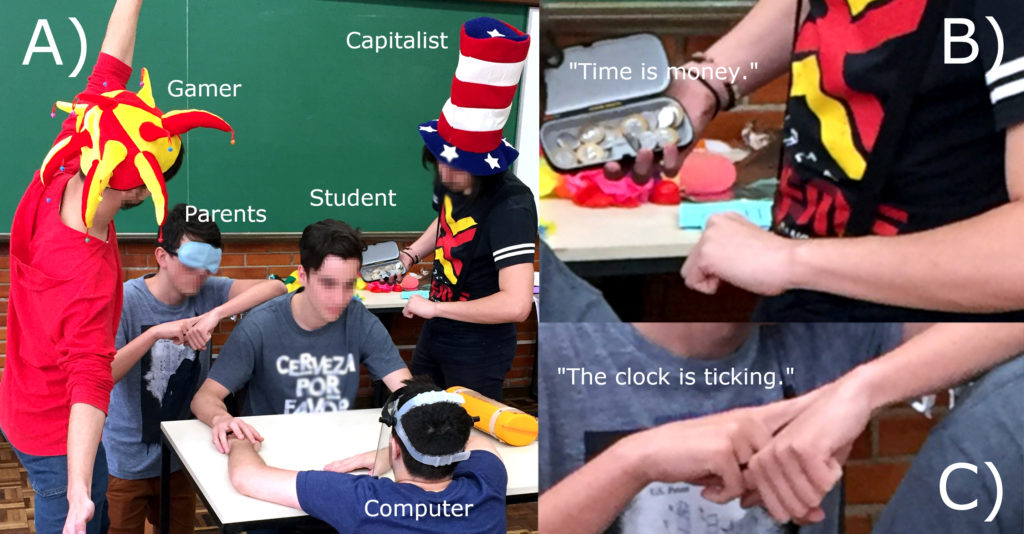Van Amstel, Frederick M. C. and Gonzatto, Rodrigo Freese. (2022). Existential time and historicity in interaction design. Human-Computer Interaction, 37(1), pp.29-68. DOI: https://doi.org/10.1080/07370024.2021.1912607

Abstract: Interaction design is increasingly taking part in privileged history-making activities of our society. These activities require a responsible attitude to temporality, considering multiple courses of time and different ways of being in the world. This research introduces the concept of existential time drawn from the work of Álvaro Vieira Pinto to understand interaction design in the production of existence and its denial. The concept is applied to explain a couple of design fiction projects that strived for the liberation of underdeveloped existences in an educational interaction design studio. The students experimented with handling existential time’s fundamental quality — historicity, or the possibility of making history — through several conjunctural artifacts. The reflection on these experiments suggests that increasing students’ consciousness of historicity is an effective way of countering the domestication of the future, an imperialist strategy that undermines history-making activities in underdeveloped nations.
Download the paper from its publisher
Audiopaper (experimental read-out loud format)
Music playlist
Selected Brazilian songs that express the existential dimension of time.
Key contributions of this paper
- Existential time as the time when the existence of the oppressed is at stake, i.e. history
- Historicity as the the human capability of making history by acting in the world
- The role of technology in making history
- Handiness as an existential condition for making history
- Underdevelopment as an oppressed handiness
- Communities and nations as collective existential projects that can overcome underdevelopment
- The interaction designer as a deliberative practitioner that can articulate collective existential projects
- The domestication of the future that affects collective existential projects in underdeveloped conditions
- The role of design fiction in the domestication of the future
- The importance of localized futuring for overcoming the domestication of the future
- A range of new conjunctural artifacts to localized futuring including the design mockumentary
- Further details on how we use Theater of the Oppressed for Speculative Design
- Further details on how we speculate on social changes as much as on technical changes, in a dialectical fashion
- A pathway for practicing Speculative Design in tune with local and national politics
- The importance of critical consciousness for Interaction Design and HCI
Student work discussed in this paper

